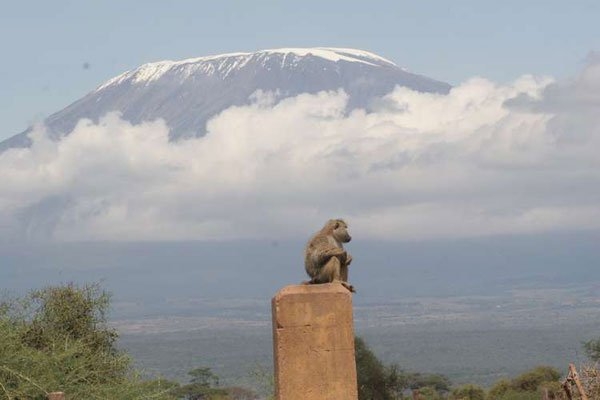Climate change killing East Africa’s water resources, UN warns

One of East Africa's (EA) most important sources of water is drying up due to the impact of climate change on Mt Kilimanjaro, the United Nations Environment Programme (Unep) warned on Wednesday.
Populations and property near Mount Elgon on the Kenya-Uganda border are also being threatened by the impact of climate change, Unep said in a report on the status of mountain environments in East Africa.
The UN agency's findings are being discussed at a three-day-long World Mountain Forum in Mbale, Uganda, that concludes on Thursday.
Unep urges the government of Tanzania to initiate large-scale reforestation of Kilimanjaro in an attempt to protect the mountain's water catchment area.
The Nairobi-based environmental body also calls on Kenya to adopt a “comprehensive climate-change policy.”
The Kenyan and Ugandan governments are further urged to “harmonise their environmental policies because, at the moment, they are scattered, disjointed and sometimes contradictory and are therefore failing to address climate change and mitigation issues, particularly in mountain areas.”
Unep's 97-page report explains that Kilimanjaro's forests feed Tanzania's Pangani River, and this vital resource for much of East Africa is threatened by an increasing number of wildfires on the mountain.
Higher temperatures linked to climate change are identified as the cause of the more frequent fires that have destroyed 13,000 hectares of forest in the past 40 years.
The amount of dew consequently lost is equivalent to an annual supply of drinking water for one million people, Unep said.
The town of Moshi in the foothills of Mt Kilimanjaro is “already experiencing severe water shortages as rivers begin to dry up, starving farmland of water in an area already struggling to cope with a dramatic drop in rainfall,” the report states.
Climate change is intensifying pressures on Mount Elgon's environment, Unep notes.
High population densities, unsustainable land-use practices and heavy rainfall make the mountain prone to landslides and downstream flooding that have destroyed life and property, the report says.
The EAC and the governments of Kenya and Uganda have adopted requisite policy responses, “but the level of implementation and compliance with these instruments is still very low, especially at the regional level,” the report observes.
“Climate change is severely damaging Africa’s majestic mountains and the people who depend on them,” said Unep chief Erik Solheim.

Facebook comments